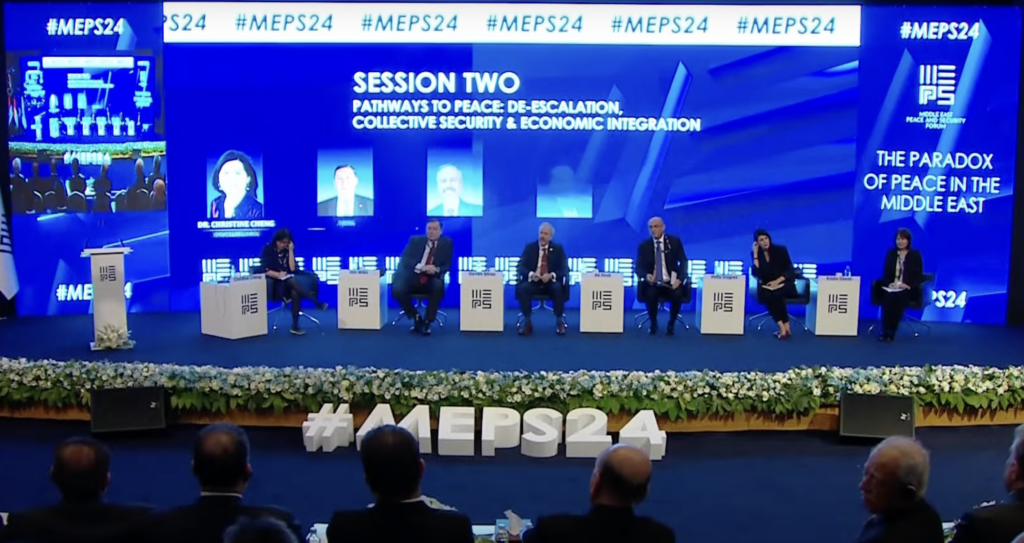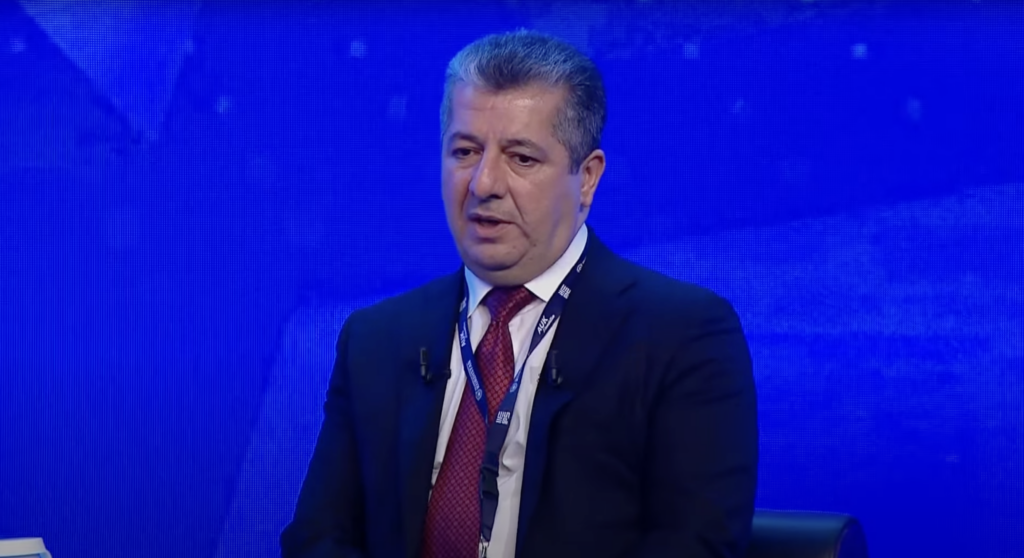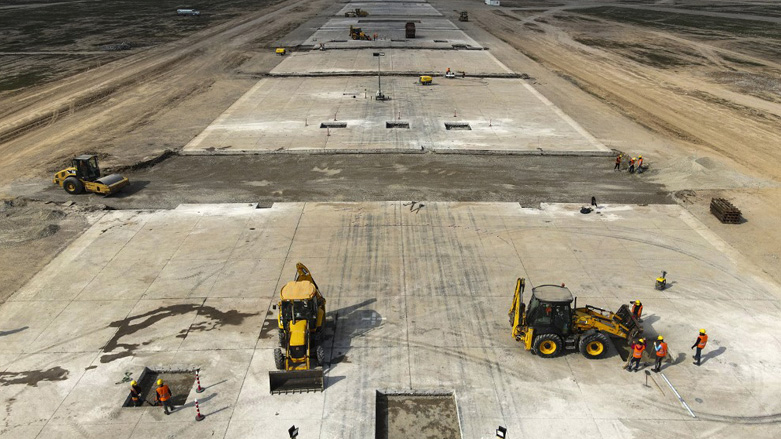PKK is an international proxy force used by many countries against Turkey

Abdul-Qahar Mustafa | Exclusive to Ekurd.net
The contents of this article reflect the author’s personal opinions
Since coming to power, the Turkish government of AKP party has adopted the so called “Zero Problem with neighboring countries” with the aim to improve its international relations and possibly to cut the support base that was provided directly and indirectly by Turkey’s neighboring countries for Partiya Karkerên Kurdistanê [Kurdistan Workers’ Party] (PKK) in the past. However, Turkey still has conflicting interests with many countries like Syria, Iraq, Cyprus, Israel, USA and Armenia, which it means there is no guarantees that these countries will refrain from directly or indirectly supporting PKK at any time they find it necessary. The countries that are at odd with Turkey for geopolitical or ideological reasons can use the PKK as a proxy force to make political and economic concessions or hurt the national interests of Turkey in general.
Proxy wars have been common around the world for centuries. Many countries including Turkey and its neighbors, use proxy forces against their foes and rivals to achieve their political and economic objectives .Often times when there is a conflict of interest between two countries, one nation creates or uses, and supports and supplies another nation’s rebel force, guerilla movement, or even terrorist organizations, to directly or indirectly attack the interests of an enemy nation state.
This type of war is the achievement of international political goals pursued by other than political and diplomatic means. Given that, if you can get someone else to achieve your political aims for you, why send your own soldiers to die. The main reasons that Proxy Wars are pursued by countries rather than conventional warfare is to protect the social, economic, political, military and infrastructure interests within a global community of nations. It is also pursued over regional rivals, geopolitics, ideological differences and above all resources.
Many reports show that in the past, governments of countries like Armenia, Iran, Greece, Syria, and Iraq have played a significant role in training, sheltering, feeding, and arming PKK fighters. These countries have used the PKK organization as a proxy force to strike back the national interests of Turkey whenever and wherever their national interests were hurt by Turkey. For example, Iranian-Turkish relations became more confrontational after the Iran-Iraq war ended, in part because of ideological differences.
Each country viewed the other through the narrow screen of their secular-religious divide. The Turks were particularly suspicious of Iranian support for fundamentalist movements in Turkey. The Iranian ambassador to Ankara was declared unwelcome person after he criticized the Ankara’s ban on Muslim women wearing headscarves in universities and government offices, and even participated in demonstrations against the ban. Ankara was also bitter about Iranian aid to insurgents in the PKK, which operated bases deep in Iranian territory. In 1991, Turkey detained an Iranian flagged vessel on suspicion of carrying weapons destined for the PKK.
Iran harbored suspicions and wanted persons of the Turks. Khomeini the Islamic revolution of Iran said that secular Kemalism of Turkey was worse than communism. The Turkish regime, he charged, held on to power largely through the power of weapons. Echoing Turkey’s concerns, Tehran complained that Ankara was not doing enough to control Iranian dissidents operating on Turkish soil. Iran was also suspicious of Turkish interference in its own province of Azerbaijan, as well as in the post-Soviet republic of Azerbaijan. The Azeri populations in both have close linguistic ties to Turkey. But Iran focused more on Turkey as an external threat. As a member of NATO, Turkey brought the world’s biggest and strongest military alliance to their common border.
After the Soviet Union’s collapse, the West also turned to Turkey to counter Iranian influence in the newly independent Central Asian states that had been part of Moscow’s empire. They also had differences on Iraq, despite agreement about containing Kurdish ambitions in Iraq. Turkey wanted Saddam Hussein to cooperate with the international community to end economic sanctions.
Ankara also wanted Baghdad to reestablish control over all Iraqi territory. But after its eight-year war with Iraq, Iran wanted the Baghdad regime weakened by U.N. sanctions and wanted a regime change in Iraq because Sadam prosecuted Shia of Iraq on a large scale. This policy of Iran has frequently led to friction with Turkey, due to the fact that at the same time Iran was arming Iraqi Kurds as part of its struggle with Saddam Hussein. The PKK has likewise been using northern Iraq as a base from which to launch attacks on Turkish soil.
Furthermore, Armenia as a hostile country to Turkey over the Genocide of its ethnic population by Ottoman Turks, presents another example on how neighboring countries used the Kurdish issue and PKK as a proxy force to hurt the interests of Turkey. There have times when PKK attacked Turkish military bases along the northeastern Turkish border next to Armenia, which it clearly showed that the PKK was being provided with support and a safe haven in that neighboring country. One more example is the Syrian government’s proxy war against Turkey. Syria is another neighboring state which has frequently supported PKK separatists in an effort to promote its own interests. Syrian Supported the PKK as a countermeasure to the measures Turkey has taken on the down streaming the flow of the Euphrates river to Syria and its alliance with Israel.
Now, why governments that are at odd with Turkey choose to support PKK against Turkey and not any other opposition groups in Turkey. The answer is because PKK has proven to be one of the most powerful and effective organization in fighting Turkish army because the fear of death is far lesser in the PKK guerillas than in any other proxy force. PKK uses military tactics including assassination, abduction, ambushes, sabotage, raids, suicide attacks, mining, and roadside bombs against Turkish army and government officials in general.
The PKK guerrillas also attack the Turkish forces, usually hit and run tactics, and disappear into the surrounding forests and mountains in the border areas of Armenia, Syria, Iraq and Iran. After more than three decades of war, Turkey failed to stop these attacks on its army because not only PKK guerrillas are usually familiar with the mountainous area , forests, terrain and landscape, and they use this to their advantage in their attacks, but also enjoy local and international support in many ways.
PKK still secretly receive financial, logistical and strategical support from more hostile countries to Turkey like USA, Israel, and Armenia. It also has support from local Kurdish population, from Turkey, Iran, Iraq, Syria and Kurdish diaspora around the globe. Hundreds of young male and female Kurds join PKK forces on the mountains in north of Iraq every year.
Also, PKK has still not been recognized as a terrorist organization by UN and powerful countries like Russia and China .And millions of Kurds still believe PKK is not a terrorist organization .There are also countries that have conflicting interests with Turkey such as Greece, Cyprus, Israel, USA, Armenia, Syria, and even Iraq and Iran off and on depending the situations. This means there will always be countries and people who will support PKK one way or the other to hurt the interests of Turkey and as a result the war between Turkey and PKK will never have an end.
It’s much easier ,wiser and significantly less costly for Turkey to make peace with PKK than actually continue causing loss of lives, damaging property of people and wasting economic resources on fighting against PKK almost every day .Peace is the best solution to end this costly long conflict because it will put an end to the loss of lives from both sides ,so will end all sources of support provided by different hostile countries and Kurds who keep PKK strong and alive and help its fighters to go on and kill solders ,MIT members and diplomats of Turkey.
Kurdish population including their political leaders are being killed, jailed, or mistreated and bulled to work only in the interest of Turkey. They are suffering from lack of peace, security, freedom, equal rights and economic prosperity in Turkey, Iraq, Iran and Syria. And they see the sources of most of all these miseries coming from Turkey rather than Iranian, Iraqi or Syrian governments. That’s why many Kurds sympathize with PKK or practically join its force to fight against Turkey.
If Turkey to respect Kurdish political administrations and parties and respect the rights and interests of all Kurds especially in Turkey, Syria, and Iraq, this will not only help Turkey to put an end to the war with PKK, but will also save many lives, expenses, and beat all the hostile neighboring and none neighboring countries who uses PKK as their proxy force to pressure and blackmail Turkey for making concessions or hurting national interests of Turkey on daily bases.
Abdul-Qahar Mustafa is a graduate student from Saint Louis high school in Canada. He is advocate of justice, democracy and human rights. He currently lives in Sarsang/Duhok, Iraqi Kurdistan. Mustafa is a senior contributing writer for Ekurd.
The views expressed are the author’s alone and do not necessarily represent the views of Ekurd.net or its editors.
Copyright © 2019 Ekurd.net. All rights reserved
Comments



